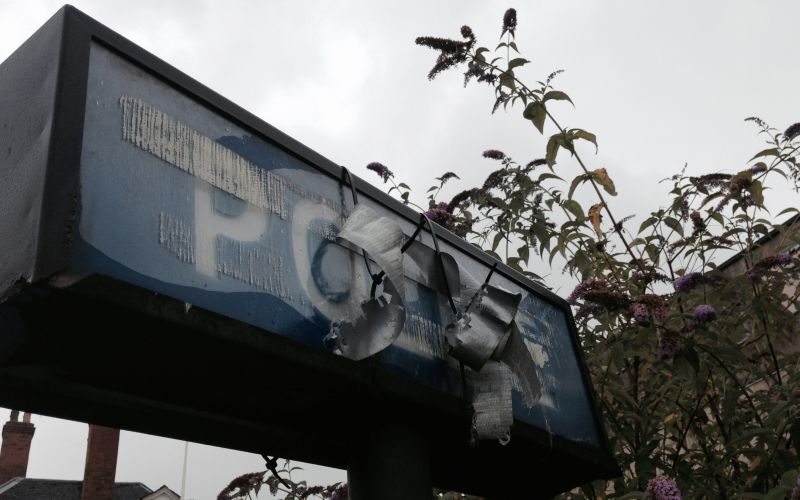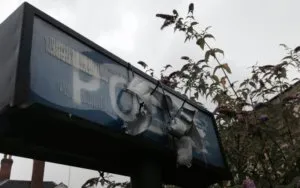The work of police officers on more than half of their disability hate crime investigations has been found to be “unacceptable”, according to a new report by two watchdogs.
The joint inspection by HM Inspectorate of Constabulary and Fire and Rescue Services (HMICFRS) and HM Crown Prosecution Service Inspectorate (HMCPSI) is the third attempt in five years to look at how the police and Crown Prosecution Service (CPS) handle cases involving disability hate crime.
The report is generally complimentary about the work of CPS, which it concludes has made “significant improvements” in dealing with disability hate crime cases.
But it is highly critical of the work of police forces in England and Wales.
The report says officers are failing to “flag” cases as disability hate crimes on police computer systems and are also failing to refer many cases to the CPS for possible prosecution, while there are delays in the investigation process and a lack of effective supervision.
It also says that police officers are failing to carry out risk assessments on victims of disability hate crime in many of the cases the inspectors sampled, and that they often fail to draw up risk management plans.
HMICFRS looked at 90 sample cases across six police forces: Cheshire, Devon and Cornwall, Hampshire and the Isle of Wight, the Metropolitan police, Nottinghamshire, and South Wales.
It found that in 19 (21 per cent) of the cases there were avoidable delays in the investigation, with all reasonable lines of enquiry explored in only 69 of the 90 cases (77 per cent), while an investigation plan was missing from 39 of them (43 per cent).
In 51 of the 90 police cases (57 per cent) examined by HMICFRS, the inspectors considered the case files to be sub-standard, including 24 deemed “inadequate”.
The report concludes that the standard of police investigations into disability hate crime was “unacceptable in many cases”.
The inspectorate also found that in 20 of the 90 cases, the outcome of the investigation had been “inappropriate”, including 14 cases dealt with by community resolution without CPS approval.
Police guidelines state that officers should never offer a community resolution – an alternative way of dealing with less serious crimes that does not involve taking the case to court – to a victim of a hate crime without checking with CPS.
The report also found that in the initial information provided to CPS, in only 16 of 160 cases (10 per cent) did police officers describe the reasonable adjustments that a victim of crime might need to give their evidence effectively.
In contrast, the report says that CPS has made “substantial progress” in dealing with disability hate crime in most areas, and now has “clear” guidance, while decision-making on cases is “excellent”.
But HMCPSI inspectors still said that the quality of more than two-thirds (about 68 per cent) of charging decisions was only fair or poor.
The report says compliance with the Code for Crown Prosecutors in disability hate crime cases was “excellent”.
And it also says there was “much greater awareness” among prosecutors of section 146 of the Criminal Justice Act 2003, under which the courts must increase the sentence for any offence where a defendant has demonstrated hostility towards disabled people, or where the offence has been shown to be motivated by hostility.
In the year to December 2017, prosecutors secured a sentence increase in nearly seven in 10 cases (69 per cent) in which they had applied for one from the court, compared to about 34 per cent in 2015-16.
But the report says more still needs to be done by CPS, although there had been “a significant and welcome improvement in some aspects of casework”.
Five years ago, HMCPSI, HM Inspectorate of Constabulary and HM Inspectorate of Probation concluded in a joint report that disability hate crime was “the hate crime that has been left behind”.
A follow-up report three years ago accused the police, probation service and CPS of failing to implement their recommendations.
Disability News Service has been reporting on the criminal justice system’s failings in dealing with disability hate crime since 2009.
It has particularly reported repeatedly on how the criminal justice system has failed to treat cases in which disabled people have been the victims of brutal and degrading assaults – many of them violent killings – as disability hate crimes.
Last year, researchers at the University of Sussex called for a new hate crime act and other key legal reforms to address the “huge justice gap” that affects victims of disability hate crime, following a major two-year study.
A note from the editor:
Please consider making a voluntary financial contribution to support the work of DNS and allow it to continue producing independent, carefully-researched news stories that focus on the lives and rights of disabled people and their user-led organisations.
Please do not contribute if you cannot afford to do so, and please note that DNS is not a charity. It is run and owned by disabled journalist John Pring and has been from its launch in April 2009.
Thank you for anything you can do to support the work of DNS…

 Ministers are considering further extension to disability hate crime laws, after pledge on ‘aggravated’ offences
Ministers are considering further extension to disability hate crime laws, after pledge on ‘aggravated’ offences Shock of activists as disability minister ignores disabled woman who collapsed on floor after cuts meeting
Shock of activists as disability minister ignores disabled woman who collapsed on floor after cuts meeting Universal credit barriers mean disabled women face ‘terrifying’ risk of destitution, MPs are warned
Universal credit barriers mean disabled women face ‘terrifying’ risk of destitution, MPs are warned